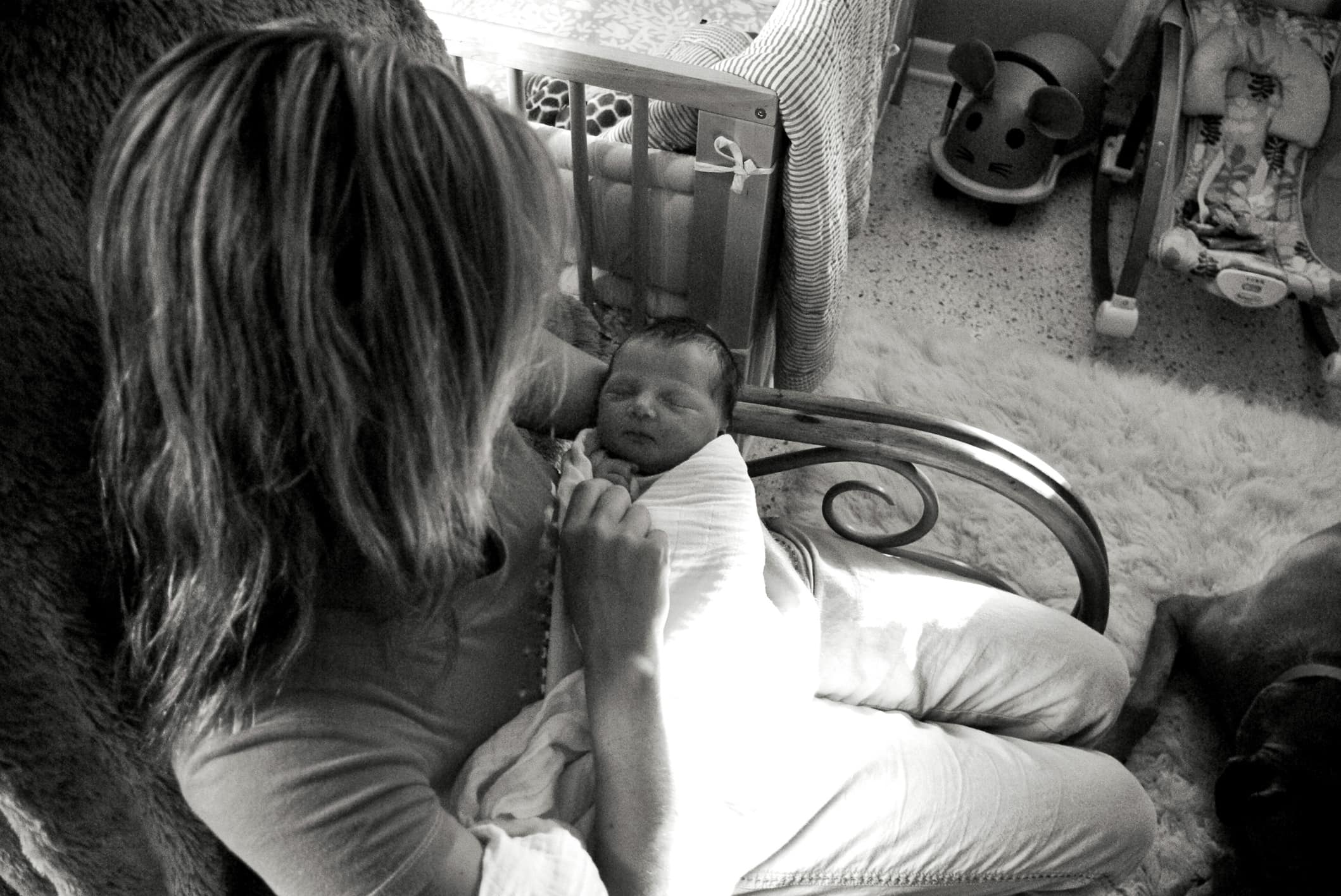[ad_1]
My parents played me a lullaby songs tape every night before bed as a little girl. Kids today probably have a custom Spotify playlist, but that’s neither here nor there! What is important is the memories of listening to my soft lullabies as I fell asleep at night.
Lullabies set the tone for your little one to fall asleep at night, but they are more than that. Lullabies have significance and meaning. Some nursery rhymes have been slowed down to become lullabies due to the familiarity of the music. We will discuss some of the best lullaby songs and their origin.
Best Lullaby Songs
1. Twinkle Twinkle Little Star
This is one of the most commonly known lullabies. Jane Taylor wrote the lyrics to this lullaby as a poem in 1806! I have a toddler, and one of the songs that I hear him signing most often is “Twinkle Twinkle Little Star. How I wonder what you are. Up above the world so high, like a diamond in the sky…”
2. Rock-a-Bye Baby
This lullaby is a very common lullaby with some dark lyrics and speculation on its origin. “…when the bough breaks, the cradle will fall, and down will come baby, cradle and all.” The tune is harmless but can be alarming when you think about a cradle falling with a baby in it!
3. Hush Little Baby
This song is another popular baby lullaby that allegedly has roots in the Southern U.S. This lullaby is controversial because it alludes to bribing your child to get them to do something you want. Personally, that is entirely relatable! “Hush, little baby, don’t say a word. Mama’s gonna buy you a mockingbird.” I am not below bribery to get my children to do what I want them to do on occasion!
4. Row Row Row Your Boat
An uplifting lullaby for parents and kids alike. The inspirational lyrics discuss rowing your boat down the stream and doing it merrily even though things might get tough.
5. Baa Baa Black Sheep
This one is another dark lullaby. The BBC states that it “is about King Edward I’s medieval wool tax imposed in the 13th century.” That seems kind of intense for a lullaby! But it is a catchy tune.
6. Somewhere Over the Rainbow
This song was written for the 1939 movie The Wizard of Oz. The song was sung originally by Judy Garland and has been covered many times over the years. A professor from Columbia University, Walter Frisch, has said that the song’s mass appeal is “the universality of a childhood desire to get away or escape.”
7. Frere Jaques
Translated from French to English, the title is “Brother John.” This popular lullaby is sung in both English and French around the world. While believed to be written in the decade prior, it was published in 1860 with its current lyrics.
8. Brahms’ Lullaby
This lullaby has an incredibly famous melody and is probably the most widely recognized lullaby of all time. “Lullaby and goodnight…”. The composer Brahms wrote this song as a gift to the baby of a woman that he used to love when he was younger.
9. Fur Elise
Beethoven wrote fur Elise in 1810. Fur Elise translates to For Elise, and there is still some mystery around for whom Beethoven wrote this beautiful melody. Was it for one of his students, one of his friends, or one of his lovers? We may never be sure!
10. Itsy Bitsy Spider
This lullaby is a familiar nursery rhyme and hand game for young children. “The itsy bitsy spider went up the water spout. Down came the rain and washed the spider out. Out came the sun and dried up all the rain, and the itsy bitsy spider went up the spout again.” The origin of this popular lullaby is unknown. It was initially published in 1910 with darker lyrics (“the blooming, bloody spider”), and it was not until 1948, when the song was re-written with more appropriate lyrics that the tune took off in popularity.
11. Amazing Grace
A Christian hymn and an incredibly recognizable song worldwide, this song was written by John Newton in 1772, who worked as a slave trader against his wishes. It is said that his experiences in his profession inspired the song. After he was able to get out, he worked tirelessly to abolish the African slave trade. Knowing the backstory to these lyrics like “I once was lost, but now am found. Was blind, but now I see” really makes you listen to the song differently.
12. Mary Had a Little Lamb
This one is based on an early 1800s true story of Mary, a farmer’s daughter, who found a little white abandoned baby lamb while tending to her farm duties. She painstakingly convinced her family to adopt the lamb and nursed it back to health. The lamb allegedly followed Mary everywhere, even to school! One of Mary’s classmates wrote this cheeky poem about her little lamb, which later became this beloved nursery rhyme.
13. Ring Around the Rosie
This is another dark lullaby that is rumored to be about the bubonic plague. ‘Rosie’ is the rash that killed 15% of Britain’s population during the outbreak. While today, it is a cute song for toddlers to sing while spinning in a circle and then falling down. Maybe we won’t tell them the real meaning!
14. Canon in D
This is the quintessential “wedding song,” but it is also played as a lullaby for little ones. Written by Johann Pachelbel sometime in the 17th or 18th century, the song was not popularized until the 1960s when re-recorded by a French conductor named Jean François Paillard. Perhaps people reminiscing over their weddings is what makes this a popular lullaby as well.
15. London Bridge
London Bridge is a catchy nursery rhyme and lullaby for little ones, but it is another one with dark origins. “London Bridge is falling down, falling down, falling down. London Bridge is falling down, my fair lady” sounds innocent enough. But why did the bridge fall down, and who is the fair lady? There are so many theories . . .
When I set out to write this article, a few things surprised me. First, I had no idea how old some of these famous lyrics and melodies are. And second, it shocked me how dark some of the stories are that inspired the lyrics. Hopefully, you learned something new in reading the history of all of these lullabies!
[ad_2]
Original Source Link

 PARENTING TIPS
PARENTING TIPS PREGNANCY
PREGNANCY BABY CARE
BABY CARE TODDLERS
TODDLERS TEENS
TEENS HEALTH CARE
HEALTH CARE ACTIVITIES & CRAFTS
ACTIVITIES & CRAFTS


